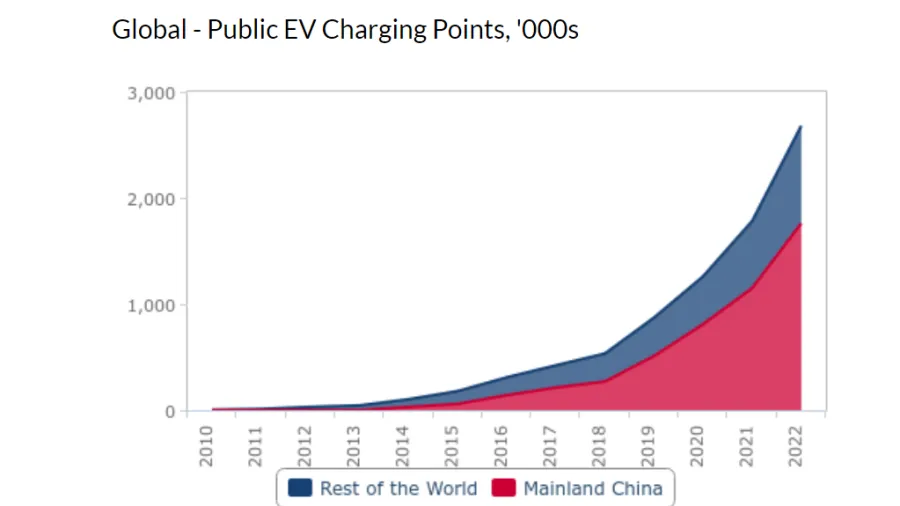
China’s dominance in EV charging space is here to stay, expert says
Government is seen favouring innovative firms.
China is poised to maintain its lead in the global EV charging infrastructure market for the next 10 years on the back of high adoption domestically and accommodative government policies, according to BMI Research, a research unit of Fitch Solutions.
The economic giant, currently the largest EV market in the world, accounts for 65% of all of the installed EV charging ports globally mainly thanks to the strong EV adoption rate at home where about 8% of the country’s vehicle fleet is now electrified, BMI said in a note last week.
As of the end of last year, its share of the world’s electric car fleet hit 58% and the country made up 67% of the global EV sales.
BMI sees China’s domestic EV market growing at an average rate of 27 percent from 2024 to 2028 before the rate of expansion eases to 6.4% from 2029 through 2033. Despite the slowdown, it said the country is still on track to account for 39% of the expansion of the global EV fleet.
“This strong growth and large market will benefit EV infrastructure expansion in China,” BMI said. “We expect Mainland China to continue to lead the world in EV charging infrastructure development by a considerable margin.”
Underpinning that growth is a supportive public sector with local and regional units, national ministries, state-owned firms and financial institutions aiding with the country’s EV charging push.
These policies include direct subsidies incentivizing the installation of charging ports as well as preferential access to credit from state-owned lenders that players in the industry can tap into.
It said state-owned enterprises also played a crucial role in the development of the initial charging network in the country. The national government, meanwhile, made it mandatory for new buildings to allocate space for charging ports in their parking lots.
Local governments also made land available for EV charging developments while energy companies were mandated to integrate EV charging infrastructure into their existing power grid with discounted rates.
BMI said continued innovation as well as the expansion of the charging network to rural areas will be key to driving the country’s EV charging infrastructure.
Government perks will likely be targeted to innovative businesses moving forward, including those specialising in decentralized grids, smart charging, vehicle-to-grid, integrated battery, photovoltaic, charging units and battery swapping.
“Besides innovative applications, we expect Chinese policymakers to focus on the development of EV charging infrastructure in rural area,” it added.















